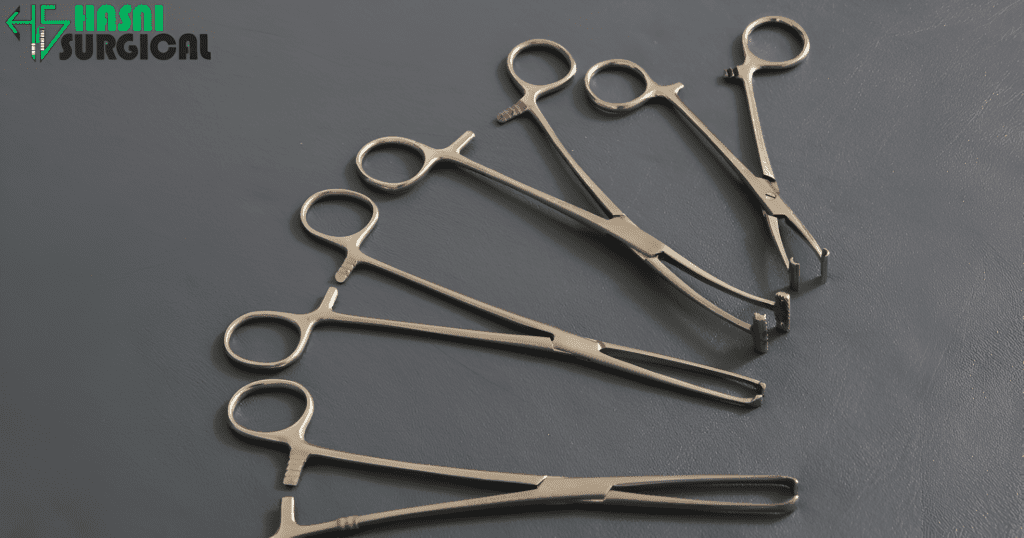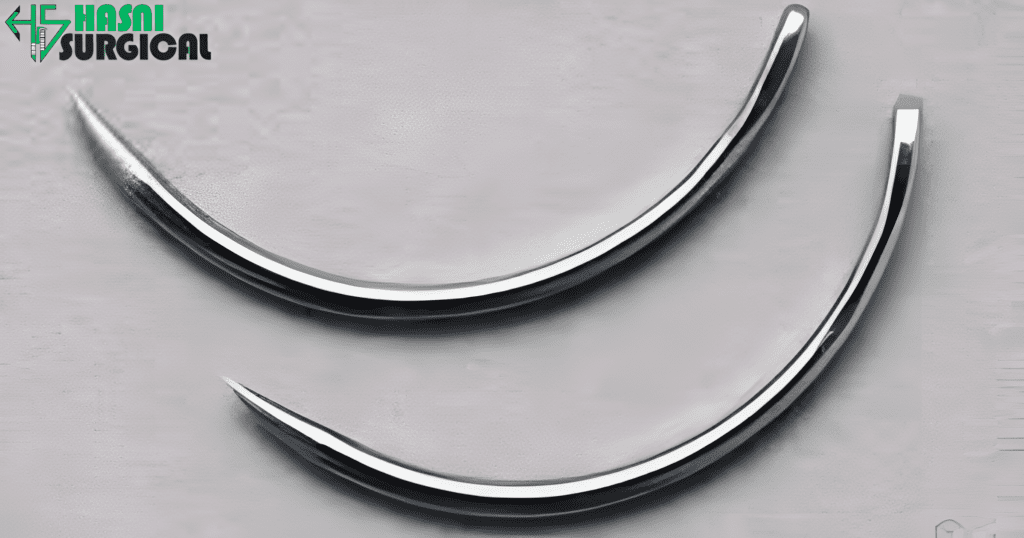4 Important tools in a Dental Vascular Kit: A Quick Handbook
April 3, 2025 2025-04-11 5:594 Important tools in a Dental Vascular Kit: A Quick Handbook

4 Important tools in a Dental Vascular Kit: A Quick Handbook
Precision and control are everything when it comes to oral and maxillofacial vascular surgery. The majority of dental vascular procedures incorporate fine structures with delicate structures in which bleeding needs to be managed, tissues have to be dissected, and suturing accomplished to ensure outcomes. Having the right gear can really make a difference in how efficient and safe an operation is.
A dental vascular kit may include specialized dental instruments to be used in the management of hemostasis, dissection of soft tissues, and suturing. They are completely essential in surgeries such as periodontal surgery, dental implantation, and excisions of oral tumors. In this Thorough Handbook, we will discuss in detail the essential items of a dental vascular kit, such as hemostats, scissors, clamps, and surgical needles.

1. Hemostats: Halting Bleeding with Precision
What are Hemostats?
Hemostats are surgical devices in vascular kits used to clamp and manage bleeding by compressing blood vessels or tissue. Proper control of bleeding during dental vascular surgery is crucial in order to keep the field clear and avoid complications.
Characteristics of Good Hemostats
- Locking Mechanism: So, hemostats have this cool ratcheted handle that locks the jaws together, which helps hold onto tissues or blood vessels really securely.
- Fine Tips: The tapered or sharp tips allow for fine control in small oral areas.
- Durable Materials: Typically made of high-grade stainless steel for their longevity and corrosion resistance.
- Different Sizes and Curvatures: Come in straight or curved forms to cater to different surgical needs.
Types of Hemostats available in a Dental Vascular Set

a) Mosquito clamps
Mosquito hemostats in vascular kits are these tiny, delicate tools perfect for clamping down on small blood vessels during dental work. Their slim design makes them great for getting into those tight spots.
Common Applications
- Compression of small vessels in oral surgery
- Control of bleeding in gum surgery.
- Tying sutures while sewing
Advantages:
- Accurate regulation of minute blood vessels
- Less tissue damage

b) Kelly clamps
Kelly hemostats are larger than mosquito hemostats and contain a serrated jaw halfway along the clamp. They provide a firmer grip and are useful when you are dealing with thicker tissue.
Common Uses:
- Clamping of large vessels in maxillofacial surgery
- Holding tissue in dissection
- Hemorrhage control in implant surgery
Pros:
- Versatile for a range of surgical operations
- Tight, firm grasp
The Application of Hemostats in Dental Surgery Bleeding control is essential for visualization and to avoid complications. Hemostats enable surgeons to grasp, clamp, and occlude vessels efficiently, to attain hemostasis, and to facilitate precise surgical procedures.

2. Surgical Scissors: Precision Cutting and Dissecting
What Are Surgical Scissors?
Surgical scissors in vascular kits are precision cutting instruments with sharp blades for dissecting soft tissue, cutting, trimming, and making precise incisions in dental vascular surgery. Their particular usage depends on the blade design implemented in oral surgery.
Top Traits of Good Surgical Scissors
- Sharp Tips: Cut neatly and cleanly.
- Fine or Blunt Tips: In most shapes of tips as per needs.
- Bent or Straight Blades: Bent blades are best suited for visibility and accuracy, while straight blades are best suited for cutting surfaces.
- Ergonomic Handles: Prevent the tiredness of hands in long cases.
Types of Surgical Scissors available in a Dental Vascular Set

a) Metzenbaum Scissors
Metzenbaum scissors in vascular kits are narrow, curved scissors with which to dissect fine tissue. Short handles and long blades are most useful to dissect soft tissues.
- Common Uses:
- Dissecting and trimming of thin tissues
- Achieving accurate cuts in periodontal surgery
- Reaching deep sites in oral surgery
- Benefits:
- Offers control and accuracy in close spaces
- Less tissue trauma

b) Iris Scissors
Iris scissors are fine-pointed, sharp, and fine-tipped and are used to cut fine tissues. They were initially created for ophthalmic surgery and are invaluable in dental surgery that requires precision.
Common Uses:
- Trimming sutures and soft tissues
- Performing delicate dissections
- Removing excess sutures after stitching
Advantages:
- Best suited for precision work
- Prevents tissue damage
- Why Surgical Scissors Are Indispensable
Accurate and clean cuts in dental vascular surgery are needed to avoid trauma and infection and for fast recovery. Good quality scissors enable the surgeons to carry out precise motions without difficulty.

3. Clamps: Hold Tissue and Blood Vessels in Place
What Are Clamps?
Clamps in vascular kits are surgical instruments that are used to grasp, compress, or stabilize tissues and blood vessels in oral surgeries. They assist in controlling bleeding, holding tissues aside, and providing a clear surgical field.
Characteristics of Quality Clamps
- Bust Grasping Ability: Grasps tissues firmly without slipping.
- Smooth or Dentate Jaws: Depending on the application, clamps may have smooth or dentate jaws for enhanced grip.
- Ergonomic Construction: Avoids hand fatigue during lengthy procedures.
Types of Clamps found in a Dental Vascular Set

a) Towel Clamps
Towel clamps are compact, pointed clamps with a locking mechanism. While both are primarily utilized to hold surgical drapes in place, they can also be utilized to assist in soft tissue management.
General Applications:
- Securing surgical drapes
- Keeping tissues away from the operative area
- Positioning assistance
- Versatile and multi-purpose
- Resilient and firm grip

b) Vascular Clamps
- Vascular clamps are specially designed for temporary obliteration of blood supply in vessels without trauma. They would be impossible without them to perform vascularized tissue procedures.
Specific Applications:
- Regulation of blood flow during vascular surgery
- Prevention of excessive bleeding
- Surgical correction with temporary occlusion
Benefits:
- Non-traumatic occlusion
- Clear sight for surgery

4. Surgical Needles: Precision in Suturing
What Are Surgical Needles?
Surgical needles in vascular kits are sharp, pointed tools designed to carry sutures through tissues. In dental procedures, suturing is critical for wound closure, tissue approximation, and hemostasis.
Types of Surgical Needles in a Dental Vascular Set

a) Taper Point Needles
Taper point needles feature a smooth, rounded tip designed to gently penetrate tissues without causing tearing.
Common Uses:
- Suturing soft, delicate tissues
- Closing incisions in oral surgeries

b) Cutting Needles
Cutting needles have a triangular point that slices through tougher tissues with ease.
Common Uses:
- Suturing oral mucosa and skin
- Ideal for tougher tissues
Conclusion: Preparing Your Dental Vascular kit for Success
A well-stocked dental vascular kit is crucial in performing complex procedures smoothly. Surgical scissors, hemostats, clamps, and surgical needles are fundamental instruments in vascular kits that offer precision, control, and efficiency.
At Hasni Surgical, we are proud to produce high-quality dental instruments meant to live up to the highest oral and maxillofacial surgeon standards. Our dental vascular kits are built to last from premium materials that will guarantee dependability, longevity, and utmost performance.
If you want to know more or to find out about our collection of dental surgical instruments, call us now. We are here to assist you to further improve the quality of care at your practice!
